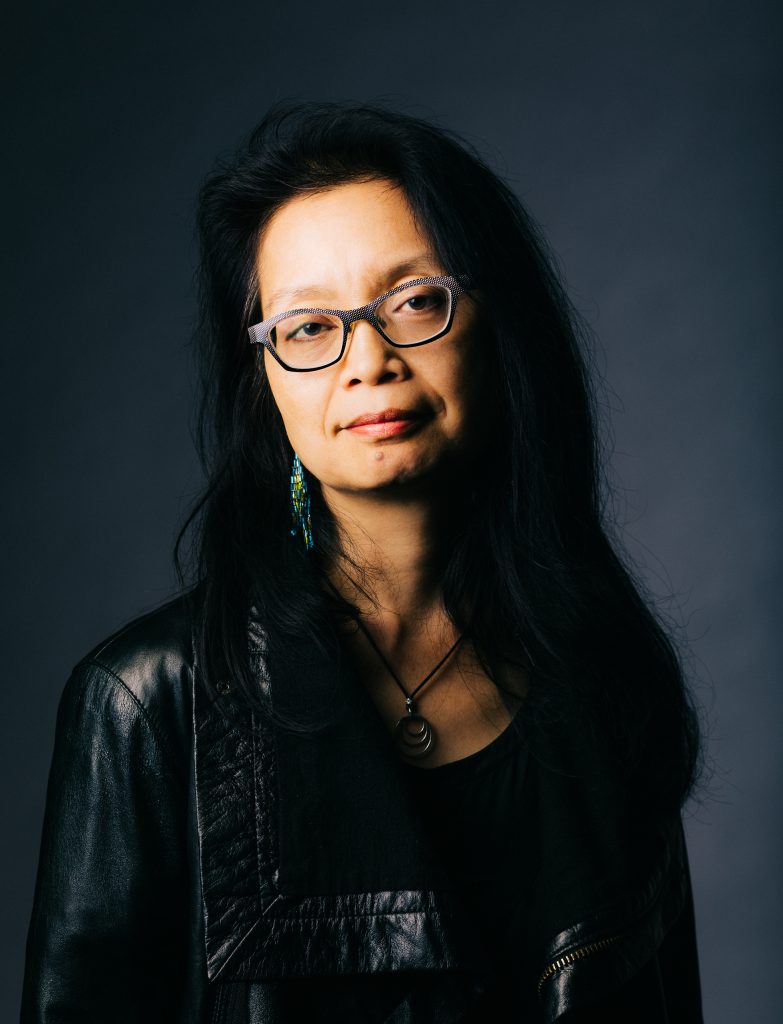When novelist Marie Myung-Ok Lee began writing her latest book, The Evening Hero, she didn’t expect the research process to take her to North Korea. The novel follows the story of a middle-aged Korean American, Yungman Kwak, grappling with memories of war in a rapidly changing world, and Lee has been working on it for 18 years. “I’m the kind of writer where once I get an idea, I have to be all in,” she shared with Tricycle editor-in-chief James Shaheen on a recent episode of Tricycle Talks. “I feel like I can’t write unless I can be embodied in what’s happening.” In order to accurately depict the daily life of an obstetrician, Lee ended up shadowing a cohort of medical students on their OB/GYN rotation, sneaking into medical conferences, and eventually helping a midwife deliver a baby. But her research didn’t stop there—at some point she realized that she had to travel to North Korea. Through a combination of luck and perseverance, she and her mother were able to enter North Korea in 2008.
For Lee, writing—and all the research it entails—is one way of honoring her ancestors, and her practice of showing up at her writing desk every day is fundamentally connected to her Buddhist practice. In a recent episode of Tricycle Talks, Tricycle editor-in-chief James Shaheen sat down with Lee to discuss her new novel, her experience raising a child with severe intellectual disabilities, and her own journey through diverse spiritual traditions. Read excerpts from their conversation below, and listen to the full episode here.
On her practice of writing every day
One thing that’s very important in Korean Buddhism is ritual, and a lot of it is the idea of tedium leading to some kind of enlightenment. There are all sorts of jokes about cleaning out the bathroom and how that will lead you to enlightenment. But there is a certain idea that when you do something every day, in some ways it is the same, but when you do it enough, you see that it’s not the same. For me, that means having a new way to observe things that I think that I know. A big part of my writing practice—and my Buddhist practice—is showing up every single day, which is connected to the importance of ancestors and ghosts. I literally write every day (my TikTok handle is daily_writing_makes_book), and a lot of it is about checking in. It might just be changing a single word. But I really feel that the work is a living organism and needs to be engaged with every day. And then you keep adding pages, and eventually, you get the thousand pages that this book was.
On her journey to Buddhism as a parent
When my son was 18 months old, he was diagnosed with cancer, along with a number of other medical issues, including autism and intellectual disabilities. That experience, more than anything else, pushed me over from being Christian and kind of Buddhist to just being fully Buddhist. Buddhism helped me with my initial mindset of “God will fix this” or “You must have done something terrible.” I was going to church at the time, and there was this very weird theology that wasn’t helping me deal with what was happening. I saw it more clearly with my husband because he always wanted to have children, and I saw how devastating it can be when you have these plans and things do not go as planned. It can be so easy to get stuck in a depressive rut, thinking, “This isn’t supposed to be like this.” I could feel myself going into that rut, and leaning more deeply into being Buddhist and learning how to be present for my son helped me get out. It really is the power of repetition, being present for my son every day, no matter if he was hitting us or smearing his poop around—just showing up and being present. It did eventually result in certain epiphanies. I have learned that I am a really good parent to him. I started out being really unsure of myself and needing the experts, until finally I realized that I know my son and I’m a good parent to him and I didn’t have to institutionalize him (as experts were recommending). This has opened up a whole world of joy. At school this week, he made this goofy picture of himself where he’s smiling, and his teacher pasted on a picture of him as an astronaut. We didn’t have any pictures of him smiling from when he was 9 to 13, and now he’s just so joyful. A lot of it has been because we’ve accepted him for who he is, and he understands that now too.
On Buddhism, animism, and the Holy Spirit
For me, Buddhism is mixed into what I do every day, and it’s also mixed into me talking to my plants. I don’t necessarily discount the idea that the oneness that I can feel through my Buddhism and my plant worship and animism is the same thing as what Christians might call the Holy Spirit, or what metaphysicists call energy. It all might be the same thing. But I’m actually now at a place that I’m really enjoying because I don’t feel that I have to explain it or actually understand it.
♦
Listen to the full podcast with Marie Myung-Ok Lee here:
Thank you for subscribing to Tricycle! As a nonprofit, we depend on readers like you to keep Buddhist teachings and practices widely available.
